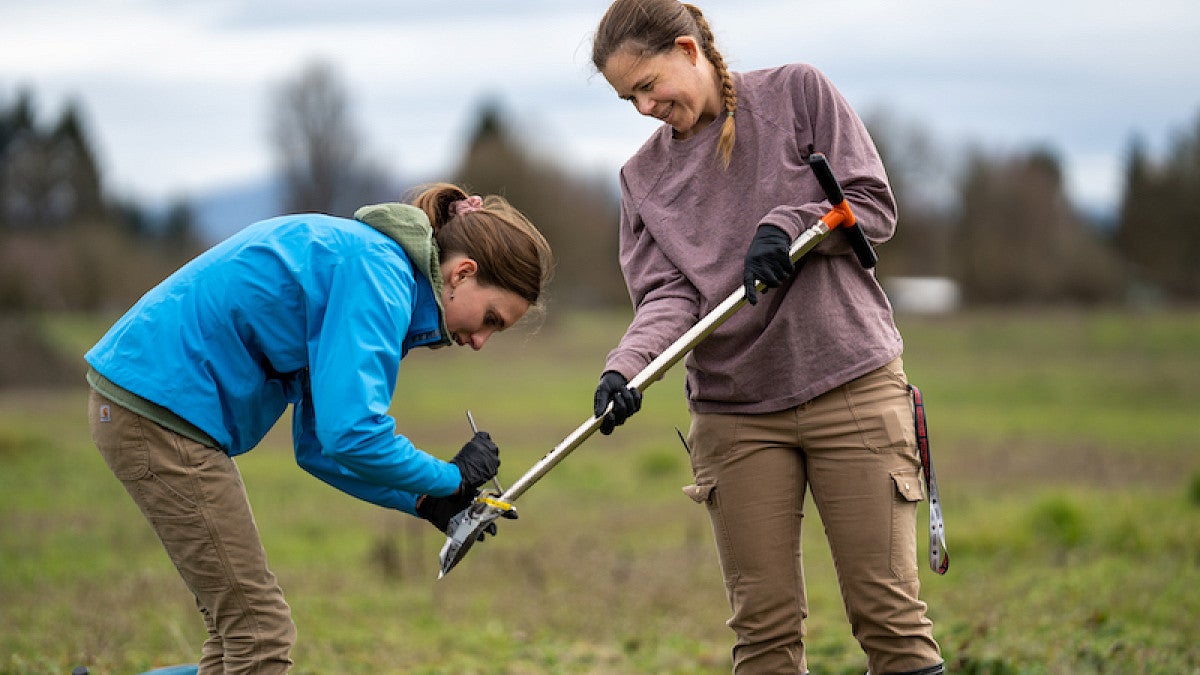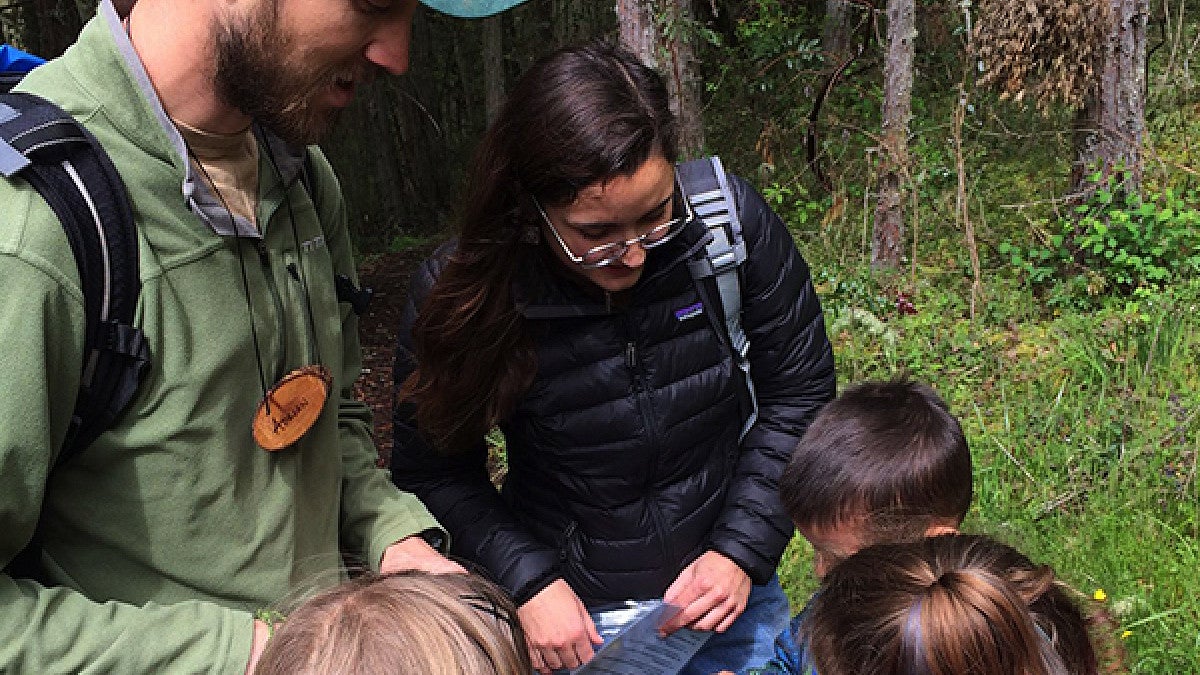
Graduate students design their own individualized course plan and select faculty mentors from within ENVS and across the university. This individualized degree planning allows students to integrate methods from a range of disciplines, to explore problem areas that cut across different disciplines, and to gain a unique combination of skills for the job market or further education. We encourage innovative interdisciplinary work that leads to exceptional scholarship and impactful results.
General Information for Master's and Doctoral Prospective Students
Our master's program offers an MS or MA in Environmental Studies, while our doctoral program offers a PhD in Environmental Sciences, Studies, and Policy (ESSP). About equal numbers of master's and doctoral students are admitted.
Admission is granted for Fall term only. The deadline for doctoral applications is December 1. The deadline for master's applications is January 15.
It is the applicant's responsibility to ensure all materials are submitted by the deadline, including transcripts and reference letters. Late or incomplete applications will not be reviewed. Applications are reviewed by a committee of ENVS core faculty members, with input from current ENVS graduate students on master's applicantions. All applicants will be notified of their admission status by March.
Plan ahead for your application by doing the following:
- Do research on our faculty, programs, and courses to make sure ENVS and the University of Oregon is a good fit for your interests.
- In the online application, you will need to list two to three faculty members who are potential advisors. To identify potential advisors, look at their websites to learn about their research interests and some of their publications. See our Faculty page and follow links to individual websites. Also, look at faculty in units other than Environmental Studies whose interests are close to yours.
- In the online application, you will also need to list courses for your concentration areas. Many of these courses will be from units other than Environmental Studies.
- International students should read information specific to international applicants on the International Admissions web page.
Application Process for Master's and Doctoral Programs

Step 1: Complete the Online Graduate Application
Step 2: Submit Optional Documents to the Environmental Studies Program
Step 3: Submit Official Documents to the Office of the Registrar
Step 1: Online Graduate Application
All applications are submitted online. Hard copy materials are not reviewed by the committee. Documents such as your resume and statement of purpose can be uploaded as one of these file formats: .pdf, .dox, .docx, .jpg, .png.
You do not have to complete the online graduate application in one sitting. You can continue to work on your application until your payment is made or the deadline passes. When starting the application, be sure to remember your login credentials so that you can come back to where you left off and track submission of your letters of recommendation. The non-refundable application fee is required (credit, debit, or e-check) after you have completed your application and are submitting it. The fee is $70 for domestic students and $90 for international students.
Be prepared to:
- Select the correct major.
- Environmental Studies for the master's program
- Environmental Sciences, Studies, and Policy for the doctoral program
- Enter information on three people who have agreed to write letters of reference for you.
- Recommendations from faculty members who have taught or advised you carry the most weight. Letters from professionals who have supervised you in environmental work are also acceptable in a supplemental capacity.
- Enter their name, position, institution or employer, address, telephone number, and email address.
- The University of Oregon will notify them via e-mail that a letter is needed.
- Upload a current resume or CV.
- In addition to the standard elements of a resume, list any environmentally-related employment, projects, or volunteer work.
- Upload a Statement of Purpose.
- This is a narrative of three to five double-spaced, typewritten pages that clearly expresses your reasons for applying to this program.
- Show how past achievements make you a good candidate and how your experience will complement your ambitions. Describe any intangibles not represented elsewhere in your application.
- Avoid the obvious. Applicants can assume that we believe those who want to come here are dedicated to make the world a better place, have nurtured these tendencies since childhood, and think the Pacific Northwest is beautiful and environmentally friendly.
- Input information into the applicant course plan area of the application.
- Identify three faculty members with whom you would like to work.
- For master's applicants, name your two concentration areas and list four to five UO courses for each area.
- For doctoral applicants, name your secondary concentration area and list four to five course for it.
- To identify potential courses, access the list of graduate-level courses in the University of Oregon catalog.
- Your concentration areas may be composed of any 500-600 level classes offered at the University that are listed in the Catalog.
- Ideally, the concentration areas complement each other and form a coherent, cohesive plan for your studies.
- Upload any other information required by your focal department.
- Some focal departments require other information, such as writing sample or portfolio. Contact your intended focal department (Graduate Program Coordinator) to find out if any other information is required.
- At the time of application.
- Applicants must submit unofficial transcripts from all colleges or universities previously attended, including the University of Oregon. Unofficial transcripts are uploaded as part of the online application.
- Applicants who accept their offer of admission and matriculate must submit official transcripts from all colleges or universities from which they received a bachelor’s degree or higher. Detailed information about submitting official transcripts is available here.
- English Language Proficiency Requirements for all non-primary English speaker:
- More information is available on the English Language Proficiency Requirement.
- Payment
- Be sure your application is complete prior to authorizing payment, as changes cannot be made after payment has been submitted.
Step 2: Submit Optional Documents to the Environmental Studies Program
- Official GRE score report from the Educational Testing Service (E.T.S.)
- Institution Code - 4846
- Department Code - 0502
Send to: Graduate Programs Coordinator
Environmental Studies Program
5223 University of Oregon
Eugene, OR 97403-5223
Step 3: Submit Official Documents to the University
The following must be submitted directly to the university. Please use the listed codes (where applicable) to ensure that official scores reach us.
- Official transcript(s) from the institution(s) from which you earned a degree(s) are no longer required with application unless student is accepted into program as of 2023. More information on official transcripts available here.
- International Students and non-primary speakers of English:
- Proof of English Language Proficiency. More information on Proof of English Language Proficiency available here.
- Financial Verification. More information on Financial Verification available here.
For questions about the graduate admissions process, contact the Environmental Studies Program Graduate Coordinator, Ben Hinde at bhinde@uoregon.edu.
How to Apply for Graduate Specialization in Environmental Humanities
The Environmental Studies program offers a graduate specialization which allow you to combine your primary degree with an additional set of courses designed to enrich your academic qualifications. You must apply to (Declare) a Graduate Specialization, as indicated below.

Find out more about the Environmental Humanities graduate specialization and how to apply.
Environmental Humanities Specialization
Declare a Graduate Specialization

